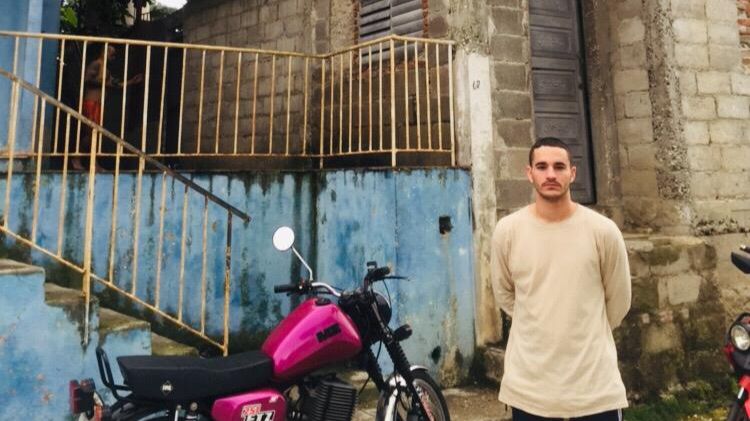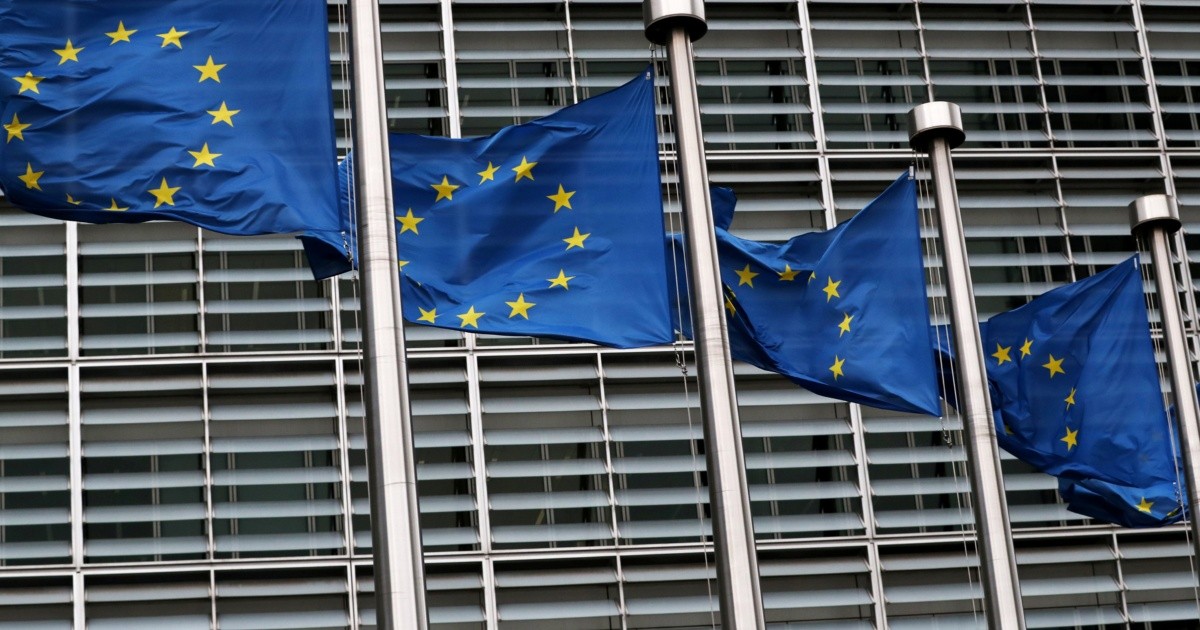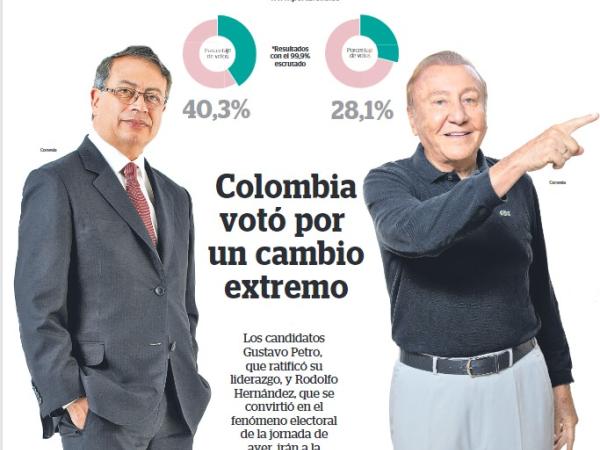HAVANA, Cuba.- The first thing that Andy García Lorenzo has done when he was released from prison this May 25 is dedicate his words to mention his colleagues in the cause, those demonstrators of July 11 (11J) 2021 in Villa Clara with whom he shared a cell, that is “my debt, I don’t want to talk about myself as much as about them,” he said.
Despite knowing that his complaints could cause the Cuban State Security to pick him up at home immediately to take him to the camp where he will have to serve the rest of the four-year sentence and, therefore, spend less time with his family , overcomes those fears and narrates his experiences, he knows the importance of his testimony.
“I have so much to say, I don’t know where to start”, he told me in that phone call we had and in which he constantly apologized, “everyone who comes out of a prison comes out like this, I’m still upset because I’ve experienced injustice”, He confessed and in his words and stories the trauma is evident.
What happened that day
Let’s start at the beginning, how did your arrest happen on July 11?
I was returning home after the protest, I crossed La Audiencia street, the central street, and I joined Caridad street; I try to continue but I see that a patrol is coming and many red berets (Prevention Troops of the Cuban Armed Forces). The patrol passes me by and one of the red berets begins to say “the pelu, the one with the blue sweater”, that is, me.
I see that they begin to hit and push other people, that they begin with their barbarities; Close to me, a girl who was recording is pushed into a fence and her phone drops. I got scared. I stood in the middle of the street, put my hands on my head, knelt down and then lay down, as a sign of giving myself up. One of the policemen told me to get up, put the handcuffs on me, with my hands behind my back, and he took me to the patrol.
“Don’t hit me,” I told them several times. All the way to the instruction center (approximately seven km), one of the policemen sitting next to me did not stop hitting me, from all sides, on the ribs, on the arms, even then I had a bruise on the cheekbone that lasted several days, but especially for the ribs; It was like that all the way, I handcuffed and he hit me, to top it off, the patrol was slow. I told the other one, the one who was driving, to see that, to do something, but he didn’t pay any attention to me.
When we arrived at Instruction (Provincial Unit of Criminal Investigations and Operations-UPICO), the one who beat me handed me over and told me “calm down, boy, here you are not going to be beaten anymore”. He left without even signing the delivery. I think he did it so that his name would not be registered, he had told him that he was going to report him. I never saw it again.
It was tremendous, go figure, I’ve never been stopped before. You don’t really understand these things until you experience them.
Did they hit you again?
No. The only beating was that, when they arrested me. I saw sudden movements towards others, and I heard sounds of blows, but people are afraid to comment on that kind of thing.
Did they give you medical assistance?
After 24 hours, a doctor passed through the cells but only asking if anyone had respiratory symptoms, due to COVID-19. About three days later a doctor checked me out. He had many bruises, especially on his abdomen. But the check-up was more to see if he was planted (on a hunger strike) or something like that.
You were incommunicado for several days.
Yes, I asked for the right to a call but they didn’t give it to me. About ten days later I was able to talk to my family.
And the first visit, when and how was it?
About ten or twelve days, I don’t remember well. My mom went to see me in Instruction. They made me put on a long-sleeved sweater so my mom wouldn’t see the bruises; She also warned me that she couldn’t talk about the case, nor could I tell her anything about what she had experienced or what I was accused of or anything like that. They were aware of what we talked about all the time. What kind of violation of rights!
They also monitored my phone calls all the time.
the judgment
When did you first see your lawyer?
Like fifteen days. With him I was able to talk everything. I have a lot to thank that lawyer for. Although we think differently, he has been very respectful and professional. At trial he stood up, he showed that there was no hard evidence against me or anything, and he asked for my acquittal.
The trial was in January this year. Tell me how it was?
Everything was planned, you could see the collusion of State Security. I remember that we looked at each other and said “asere, this is a joke, why did we come here, this is for pleasure, these people already know how many years they are going to throw us out”.
Witnesses who, although they had never seen you in their lives, turned around and even knew your full name. And of course, they were all Security agents. Note that no one from the town – those supposedly affected by the protest – went to testify against us, they were all government agents. It was all a lack of respect.
In all this time, were you threatened in any way or taken to punishment cells?
Yes, they were disciplinary measures. On several occasions they took away my right to phone calls.
They kept me isolated for four months, in a cell with another common prisoner who was constantly changing and who was put there just to watch me, they took me to the dining room separately, so that I did not interact with the rest.
And threats, many, especially with my family, because of the complaints they made and the support they gave me. They even told me that they would put my mother and my sister in jail. They didn’t tell me what they did to my dad, about the stab they gave him, but I found out. There are things that they don’t say, but they do. There were things that they did not tell me, threats that they did not make, because they knew that I denounced everything.
Especially at the beginning they also interrogated me a lot, even at dawn, interrogations of up to eight hours, as if one were a terrorist. Three lieutenant colonels and two majors from State Security even surrounded me with a camera, asking me to say that I repented and renounce what I think, but I did not accept it. They threatened me with 20 or 30 years in prison, life imprisonment and even that they were going to shoot me in case there was a humanitarian intervention in Cuba.
the prison
In these more than 10 months you were in various prisons in Villa Clara. Describe to me the cell you were in most of the time.
One of the cells in which I spent the longest was in area 6, cubicle 7 of the pre-prison (penitentiary center known as El Pre, because before being a prison it was a pre-university), it measured 4 by 4 meters, there I they had isolated; It hardly had any ventilation or light, it was the hottest cubicle in the entire prison, he slept on the floor because the mattress was very dirty and, furthermore, it was even hotter, he put the quilt on the floor and slept there; check if there were mosquitoes, the plague was constant because right next to the cell there was a sewage pit.
And the food, how was it?
In the Guamajal prison the food was better, nothing to do with that of the Pre and La Pendiente, which were the other prisons in which I was. In all of them the food was bad, some pork, in Guamajal whatever they gave, croquettes or scrambled eggs with rice, everything had a stench, or the bread had mold, but hey, at least they gave it hot. If that was in Guamajal, which is one of the model prisons, imagine the rest of the prisons.
Did you feel alone or abandoned at any time?
I’m going to tell you clearly, I knew that my family was doing things for me, for my freedom, but inside, with all the psychological pressures and others, you feel alone despite everything.

you felt helpless
Of course. And the only option I had was to confront them (political police). If they were going to judge me for something, let me confront them, I couldn’t sit idly by.
Your family was among the most active – in the entire country, I must say – in fighting for your freedom. Do you think this has influenced your change in size?
Of course. I have no way to thank you. I am very proud of them. Even inside I felt the change in treatment when my family became more visible, at first they tightened the threats a bit, but later they began to treat me better, because they knew that whatever they did to me, my family would find out and they would protest.
Do you then recommend that the families of the rest of the political prisoners fight for them?
Sure, it’s logical. It is the only way. Imprisoning all those families is a very high political cost and they are trying to avoid it. Anything the family can do, let them do it. While the family is more complicated (rebellious), at first they are going to squeeze you more in prison, but as time goes by, they respect you and your family, the treatment changes.
If I am here today (out of prison), it is because of the political cost that my family caused the country, by presenting my case.
home restriction
What did they tell you before they let you go?
Nothing, I was very surprised. That same day was the appeal trial. I knew that they were going to transfer me to the camp because they said so there, that they transferred me to Correctional Work with Internment (TCI), but not that they were going to let me stay at home for a few days. I was psychologically prepared for the worst, to spend the 4 years locked up, that’s why this surprised me. Simply, the trial was over, they confiscated my things and let me out. My family was outside. After 24 hours they gave me a piece of paper saying that I have a home restriction.
Guess you’ve had surveillance, surveillance these days
Tracing! A van. They follow me everywhere. It’s amazing how they waste resources.
Do you feel that all this has affected you?
It has affected me but it has also confirmed what I believe, it is what opened my eyes. But psychologically yes, it is the trauma I have for all the rapes they committed against me and the ones I saw. It is incredible that in the 21st century we human beings stop treating each other as human beings.
What did you experience or see, for example, that was traumatic for you?
My arrest, of course, the beating I received. See how they kept a prisoner handcuffed in the shape of a cross or X (tied hands and feet on a stone bed) for four days in a row, as a form of punishment. That’s hard.
Sometimes I had to sleep on the floor, near the Turkish bath (it consists of a hole in the ground where detainees must relieve themselves), despite the dirt.
Also, when I was on a hunger strike, for example, a guard went to wake me up at dawn, he told me ‘wake up, you’re stuck, you didn’t come here to sleep’, they did that to me several times, I think it was a way of psychological torture.
After all this, do you regret going out on July 11?
That question is offensive. How am I going to regret the proudest event of my life, of all Cubans, the happiest day in history, the day the people rose up against the oppressor.
Coco Fariñas, Antúnez and the prisoners of the Group of 75 spent much more than me. Despite everything I’ve been through, I’m proud of that day.
Receive information from CubaNet on your cell phone through WhatsApp. Send us a message with the word “CUBA” on the phone +1 (786) 316-2072, You can also subscribe to our electronic newsletter by giving click here.






